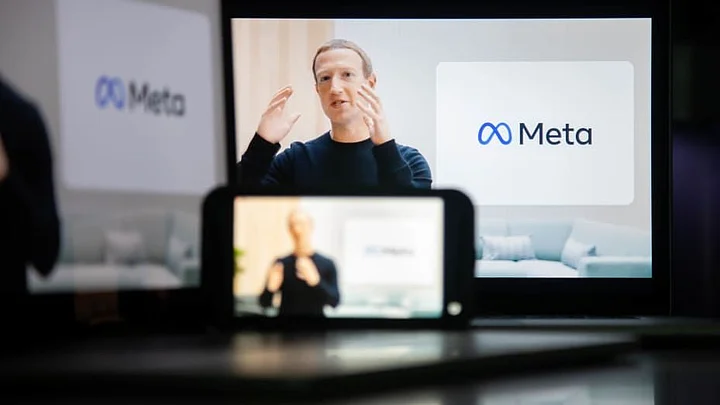After the coronavirus pandemic, people have shifted all their real-time activities online. Gaming culture and metaverse platforms have become more popular. If you haven’t seen Steven Spielberg’s Ready Player One or Netflix’s famous show Black Mirror, it’s time to watch them now as metaverse is no more just fiction.
And metaverse isn’t just a word out of a gamer’s vocabulary anymore; it is not only going to redefine work and shopping but also politics and governments as well.
What Is Metaverse?
The metaverse is a virtual environment where people will be able to meet and interact in their personalised virtual avatars. This would surely make people feel more present than a simple video call or a combination of virtual reality and multiplayer massive video games. It can make people feel more present rather than just engaging with feed-based social media.
Last month, the biggest social media platform Facebook rebranded itself as Meta and showed the vision of the metaverse. Facebook isn’t the single platform investing in avatar-based 3D virtual reality platforms, Fortnite and Roblox are popular platforms among Gen Z where users can interact and create avatars in a virtual universe.
Brands like Nike have launched Nikeland on Roblox and it plans to create virtual clothes, shoes, and accessories to make digital avatars look cool in the metaverse. Dropbox will act as a storage provider where people can keep their digital goods in the metaverse. Microsoft is planning to unveil its metaverse, digital avatar, and shared workspaces as well. Epic Games is positioning itself as the metaverse builder as well.
In the metaverse, a person can be engaged with all real-life situations like work, shop, sell, play games, date, hang out, play games, go to concerts together or even attend a political rally. Let’s understand how politics will be done in the metaverse?
Politics in the Metaverse. How?
From Barack Obama using social media in the 2009 campaign to Prime Minister Narendra Modi using holograms in 2012 and 2014, to Naveen Patnaik’s augmented reality campaign in 2019, to Manoj Tiwari’s VDR (visual dialogue replacement) campaign in 2020, Arvind Kejriwal in 2020, politicians are trying emerging mediums to reach voters.
Political leaders are using different emerging technologies to communicate where people are interacting, socialising, and getting their news from. Politicians are trying AI videos, videos games, apps, and streaming services to reach new age voters where they are, in their native language. Digital will change the game of political campaigning again with the metaverse.
We have already seen holograms and video games of politicians while election merchandise like printed t-shirts, stationery, and flags are a common feature in election campaigns of all political parties. Metaverse will be a new playing field for politicians as the voters can now buy digital merchandise like caps, hand bands, and other clothing to show support for their candidate.
Same digital merchandise can raise funds for a candidate's campaign. The Joe Biden-Kamala Harris campaign tried an in-game app with a video game called Fortnite where a video game was used to put across the campaign’s message of Build Back Better with Biden.
Governments Preparing for the Virtual World
The metaverse, now termed web 3.0 is the next step in the evolution of the internet from a 2D to a 3D virtual world with a real-life immersive experience. Governments have to take the possibilities presented by the metaverse seriously. Governments have to consider risks and opportunities that emerging immersive technologies can present in the short and long term. For example, Singapore PM office has formed a Centre for Strategic future Group to manage a fast-changing complex environment.
On similar lines, a department of technology should be considered to have representatives from private sectors, academia, and government. The United Arab Emirates (UAE) has established a virtual ministry of possibilities to bring swiftness in government and future government systems. While avatars of people will be present in a virtual environment, a digital twin strategy will be needed along with public-private regulations to keep physical objects in sync with their digital counterparts.
Several questions need to be addressed as metaverse is still in its early phase. How will governments deal with buying and selling of spaces using non-fungible tokens (NFTs) in the metaverse? How will governments deal with intellectual property rights, taxes on transactions, misinformation, and regulatory and governance structure? How will tech companies or even governments allow the identification of avatars and how will data localisation take place? There are multiple questions that governments, leaders, and tech companies have to think about before stepping up into the metaverse.
Governments Entering Into Metaverse
Seoul seems to be the first city to set up ‘Metaverse Seoul’ where administrative services like civic complaints, culture, and tourism will be implemented by 2022 end. Along with it, major tourist destinations will be introduced in virtual special tourist zones and citizens will meet virtual civic officials and consultants without visiting municipal office by 2023. This all is happening under Seoul Vision 2030 policy.
Barbados which recently received its republic status has announced to open the world’s first virtual embassy on virtual reality platform Decentraland and planning to launch other metaverse platforms as well. The virtual embassy is going to provide services like e-visas and the construction of a ‘teleporter’ which will allow people to make their avatars travel fast across other blockchain platforms.
This is just a small start; we are not far from when other nations will follow Barbados in setting up virtual offices, ministries on the metaverse, and leaders addressing people on the metaverse platforms.
(Sagar Vishnoi is a a political consultant based out of Chandigarh. This is a personal blog and the views expressed are the author’s own. The Quint neither endorses nor is responsible for them.)
(At The Quint, we question everything. Play an active role in shaping our journalism by becoming a member today.)
